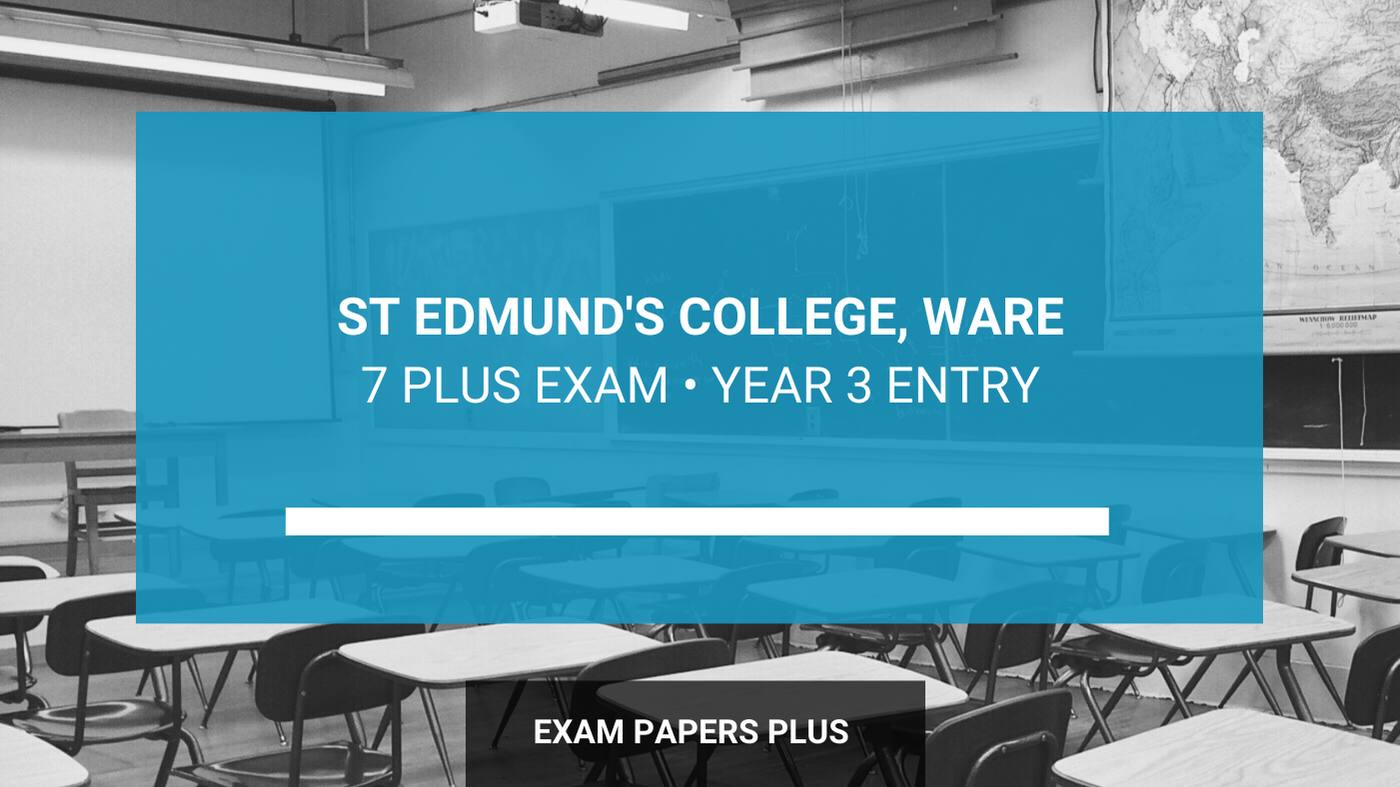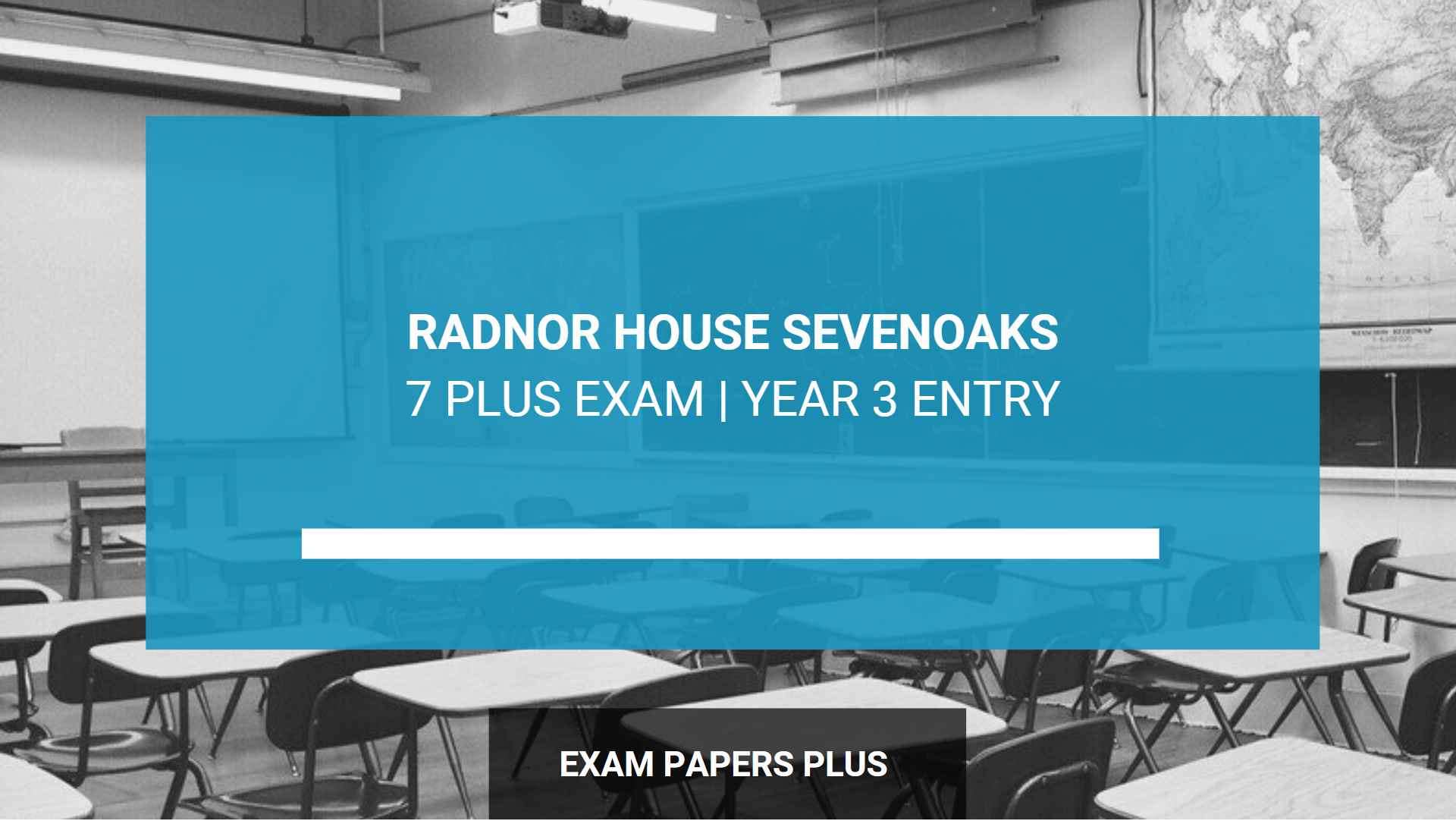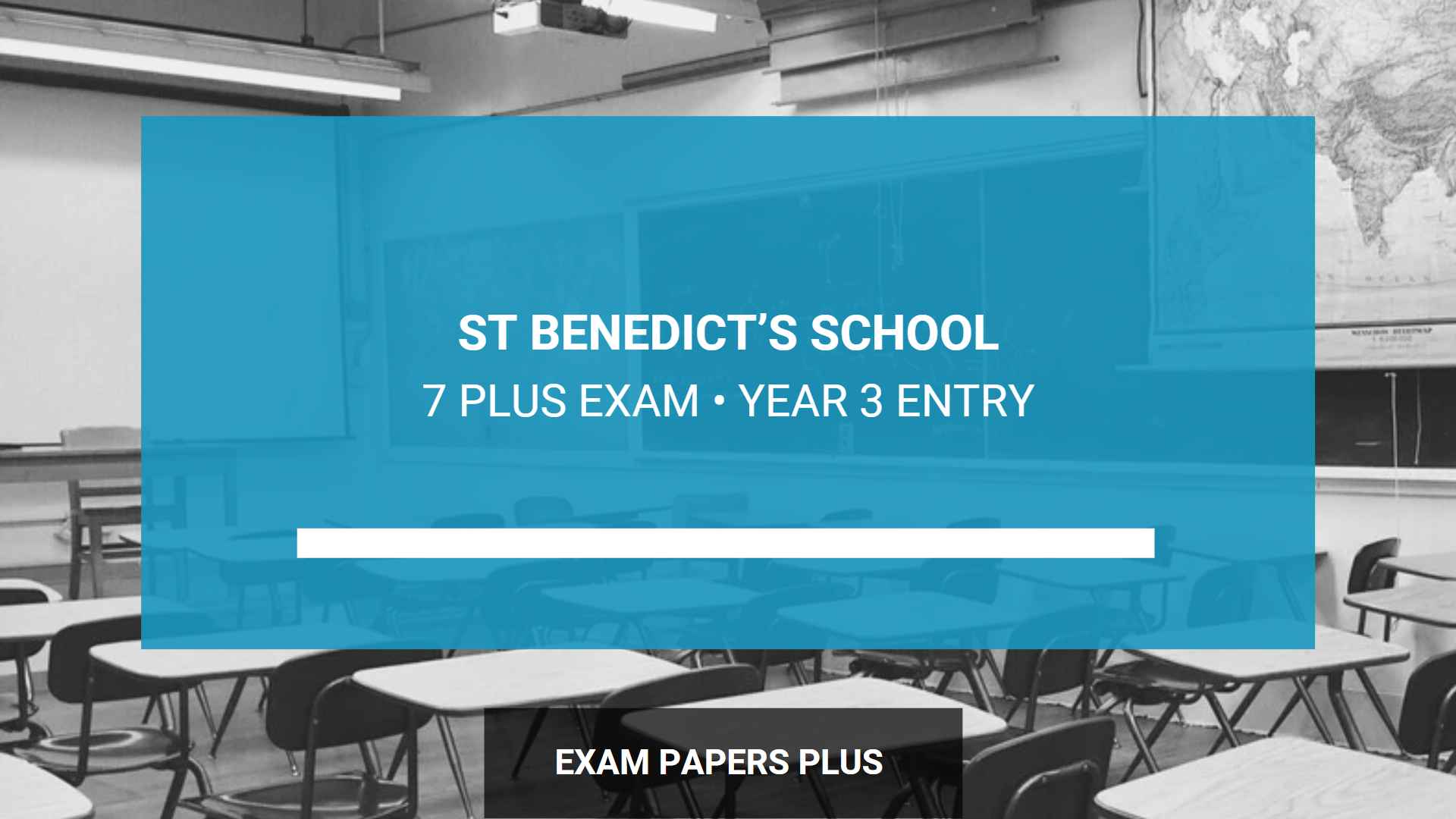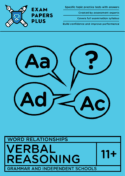
The 7+ Exam: How to prepare for success
Bookmark this page? Pop your email into the box below to receive a link to this article so you can easily refer back to it later.
Table of Contents
This article by Faisal Nasim, Director of Exam Papers Plus, was originally published by London Pre-Prep (www.londonpreprep.com). We have decided to republish it here on our blog as well. Hopefully you will find it useful and informative. Don’t hesitate to get in touch if you have any queries or questions.
What is the 7+ Exam?
The 7+ assessment is a competitive selection exam used by an increasing number of top schools in London for entry into Year 3. Your child will sit the exam whilst in Year 2. Most schools administer the exam in January, though there are some that do so at various other times of the year.
What is Tested at 7+ Level?
The 7+ exam primarily tests Maths and English. An increasing number of schools now also include a Reasoning paper containing Verbal and Non-Verbal Reasoning. The tests are usually in a written form but there can be verbal sections testing mental arithmetic, spelling, memory and dictation. There may also be manual and creative tasks to complete. Last year, one top London school asked children to draw a self-portrait.
If your child passes the examination stage, they may be asked back for an interview. (N.B. Some schools conduct the interviews beforehand or on the same day as the written tests). The interview process will usually include a one-on-one chat with the Headmaster/Headmistress and some group tasks that your child will have to complete alongside their peers.
How Competitive is the 7 Plus?
The process can be extremely competitive in London, especially at certain schools where there are more than 10 applicants per place. However, it is worth bearing in mind that this statistic is a little misleading as many apply to a number of different schools simultaneously and so the total pool of applicants is not necessarily that large. Notwithstanding this, the standard can be extremely high with successful candidates often performing at an academic level well above the national average.
Schools usually invite around 2 students for interview per place. For example, if a school has 30 places available and receives 300 applications, only 60 will be asked to interview after the examination process. Each applicant is then given a ranking based on their exam and interview performance and the top 30 will be offered a place. Those ranked from 30 to 40 will be placed on a waiting list and will only be offered a place if someone else declines. In reality, this happens rarely at the top schools and so you need to be quite high up the waiting list to be in with a chance. Most schools will tell you your exact ranking if requested.
What Are Schools Looking for at 7 Plus Level?
Most schools will claim to be looking for holistically well-rounded candidates and whilst this is generally true, the primary deciding factor is usually examination performance. However, good social skills and behaviour are of course important too. The school will usually request a report from your child’s current Head.
Do You Need a Tutor for the 7 Plus?
The more important question is how much preparation your child needs for the 7+ exam. The exam is very competitive, so clearly somebody has to prepare your child very well, either the pre-prep school, you (the parent), an external tutor, or a combination of those three. Unless your child is a genius, a considerable amount of study is required to pass the 7+ at the most competitive prep schools.
You will need to find out how much you can rely on your current pre-prep school, and how much time you yourself are willing or able to help prepare your child. If your school is not geared towards the 7+ exam and/or you work full-time and cannot sit down with your child on a regular basis, you might well need outside help. This is a contentious topic. Officially, schools are against tutoring, but it is quite prevalent, so keep an open mind about it depending on your circumstances.
Is it Better to Come From State or Prep School?
Pre-prep schools live and die by their exit results and so it’s certainly within their interest to prepare their students specifically for this exam. Whilst most pre-preps will offer extra classes and lessons for those sitting the 7+, these can vary in quality and some are a great deal better than others. It’s also worth noting that you may face some resistance to the 7+ from your child’s pre-prep as they often prefer that your child remains at the school an extra year and leaves at 8+.
State schools will generally offer little or no support towards preparing students for 7+ exams. The onus will therefore fall upon you to make sure your child is up to speed. A large number of state school children (myself included!) gain entrance to London’s top schools at 7+ every year so you shouldn’t be discouraged simply because your child currently attends such a school.
In fact, an argument can be made that those attending pre-preps are held to a higher standard at examination as the school will expect them to have received additional preparation and assistance. All else being equal, this could be used as a deciding factor between two candidates coming from the state and private sector.
Is Age Taken into Consideration?
At such a young age, birth dates and subsequent levels of maturity play a significant role in aptitude and children born in September certainly have an advantage over those born the following August. Officially, some schools will take this into account by weighting Reasoning scores according to age. Furthermore, most schools will take your child’s birth date into serious consideration when making their choices.
How to Prepare for the 7+ Exam?
Below is a general summary of the skills required, followed by suggested resources.
English
The main focus should be around comprehension and story-writing skills. For comprehension, responses must be provided in full sentences unless otherwise stated. At 7+, most questions involve simple fact recollection though some can be more challenging and abstract. The key to doing well is to have a solid technique and wide-ranging vocabulary. Your child should be reading at a level above the national average.
For story-writing, it is imperative that the response relates to the question at hand rather than simply regurgitating a memorised essay. In order to prevent this, schools may ask that the essay continues the story begun in the comprehension and some may provide image-based prompts and ideas. Marks are awarded for interesting and creative use of vocabulary, good use of structure, spelling, handwriting and logical sequence. You should ask your child to practise writing 5 or 10 lines a day about topics that interest them. You can then use that as a platform to build up their vocabulary by including more adjectives/adverbs/similes etc.
Some schools also test spelling, grammar, memory and dictation. For example, they may be asked to punctuate a sentence or there may be a verbally administered spelling test. Dictation is usually read through once and then repeated twice more slowly. Similarly, they may be read a short passage twice or thrice and then asked to write a summary in their own words. These are all skills that you can practise at home with material of the relevant level.
Mathematics
Even though the 7+ exam usually falls mid-way through the academic year, your child can be tested on the full syllabus from Year 2. In fact, at the most competitive schools, there will often be questions that go well beyond the average national level expected at Year 2. Mental arithmetic forms the basis of most papers and could be tested in both a verbal and written form. There will also be longer word problems that require two or three-step solutions as well as mathematical puzzles and more abstract questions that require deeper thought. As with English, the key is doing a small amount of practice consistently and regularly.
Reasoning
An increasing number of schools test Reasoning and so it is worth checking whether it will be examined by the schools you are interested in. Both Verbal and Non-Verbal Reasoning could be included in the exam. These types of questions are not usually taught at school so, at a minimum, you are advised to go through a few of them with your child so they know what to expect. Many children enjoy Reasoning and it can often appeal to those who like puzzles and word games.
Whilst it’s normal for children to prefer one subject over another, all subjects are equally important. To be successful at 7+, it’s not imperative that your child scores the top mark in every subject. Rather, they simply need to perform relatively well across the board and avoid a significantly weak performance in any one subject. Scoring 80% in both Maths and English is generally viewed more favourably than scoring 100% in Maths and 60% in English, even though the average mark is the same in both cases.
Timed Practice
For most children, the 7+ is their first experience of sitting a timed assessment. It is therefore worth giving them some insight into the process so that they know what to expect on the day. Closer to the exam, they should attempt some practice papers under examination conditions so they get used to managing their time and dealing with pressure. Sitting timed practice papers at regular intervals also provides a useful means of measuring progress and development and highlighting strengths and weaknesses. Some prep schools provide sample specimen papers from previous years for practice. Further 7+ practice papers are available here.
What Happens During Interviews and Assessment Days?
Interviews are generally rather informal and relaxed. Your child will likely be asked about their hobbies and interests and their responses and input will likely guide the conversation. There is no need to formally prepare and certainly no need to make your child memorise ‘perfect’ responses. (Yes this happens surprisingly often!). There will often be some form of group task that will involve working with others and following instructions. The purpose of this is to assess whether your child is able to interact and communicate with their peers in a friendly, polite and effective manner. There could also be further written tasks such as writing a poem etc.
Bookmark this page? Pop your email into the box below to receive a link to this article so you can easily refer back to it later.
















